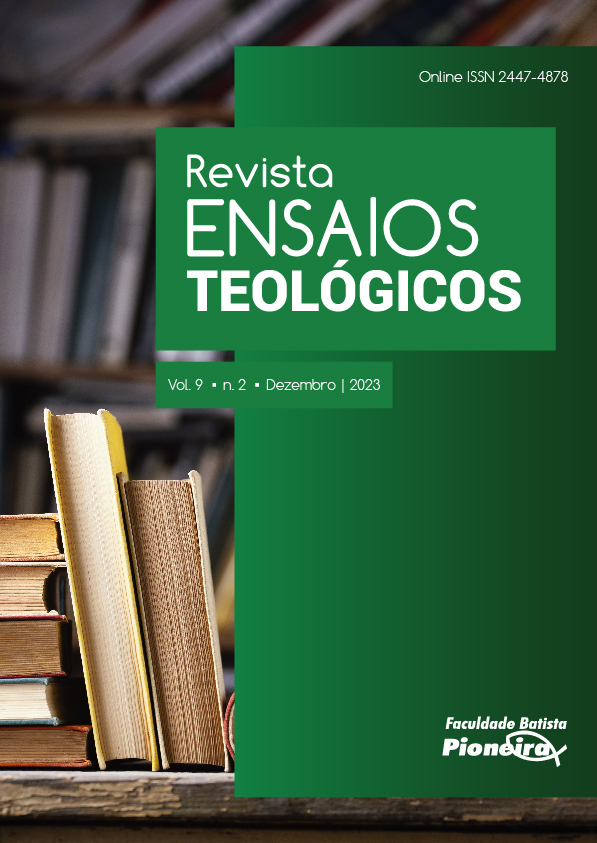EPISTEMOLOGIA REFORMADA: UMA BREVE APRESENTAÇÃO DAS PRINCIPAIS E FUNDAMENTAIS CARACTERÍSTICAS DA TRADIÇÃO EPISTEMOLÓGICA REFORMADA
Resumo
Este artigo foi desenvolvido com o objetivo de conceituar e apresentar as principais e fundamentais características da Epistemologia Reformada, especialmente no que diz respeito aos limites do conhecimento humano, às suas fontes e aos elementos que o tornam justificado. Por meio de consultas a obras de Teologia e Filosofia, especialmente escritas por autores reformados ou por intelectuais que influenciaram essa tradição, foi possível concluir que a Epistemologia Reformada é principalmente caracterizada pelos seguintes elementos: a insuficiência cognitiva humana, representada pelo sensus divinitatis e agravada pelo pecado; a centralidade da graça de Deus para o conhecimento, operada por meio da iluminação do Espírito Santo e revelada pelo testemunho das Escrituras; e pela justificação do conhecimento garantida pelo bom funcionamento do aparelho cognitivo humano e pela autoridade da revelação especial. Por fim, na conclusão deste artigo foram mencionadas as contribuições que a pesquisa desenvolvida pode ter para estudos filosóficos e teológicos acerca da Epistemologia Reformada, principalmente no que diz respeito à apresentação das principais características desta posição epistêmica.
Palavras-chave: Epistemologia Reformada. Filosofia. Teologia.
Reformed Epistemology: A brief presentation of the main and fundamental characteristics of the Reformed epistemological tradition
Abstract: This article was developed with the aim of conceptualizing and presenting the main and fundamental characteristics of Reformed Epistemology, especially with regard to the limits of human knowledge, its sources ant the elements that make it justified. By consulting works of Theology and Philosophy, especially written by Reformed authors or by intellectuals who influenced this tradition, it was possible to conclude that Reformed Epistemology is mainly characterized by the following elements: human cognitive insufficiency, represented by the sensus divinitatis and aggravated by sin; the centrality of God’s grace for knowledge, operated through the illumination of the Holy Spirit and revealed by the testimony of the Scriptures; and the justification of knowledge guaranteed by the proper function of the human cognitive apparatus and by the authority of special revelation. Finally, in the conclusion of this article are mentioned the contributions that the research made can offer for philosophical and theological studies on Reformed Epistemology, especially with regard to the presentation of the main characteristics of this epistemic position.
Keywords: Reformed Epistemology. Philosophy. Theology.
Downloads
Publicado
Edição
Seção
Licença
Copyright (c) 2025 Bruno Litz

Este trabalho está licenciado sob uma licença Creative Commons Attribution-NonCommercial-NoDerivatives 4.0 International License.

